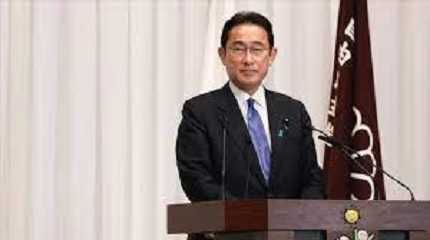
TOKYO, Dec. 28 (Xinhua) -- Japanese Prime Minister Fumio Kishida said on Wednesday that he has no plans to immediately dissolve the lower house of parliament and call a snap election, although he said the move is "possible", according to local media reports.
Kishida's remarks come amid a slump in approval ratings for his cabinet triggered by a series of scandals and gaffes leading to the sacking of four ministers in two months, and ahead of unpopular planned tax hikes.
Japan's Kyodo News reported that while Kishida said that "for now" he is not considering calling a snap election next year, a lower house election is "possible" before planned tax hikes in 2024 or later, aimed at covering an unprecedented hike in defense spending.
Owing to a string of political funding improprieties, ministerial gaffes and cabinet member and ruling Liberal Democratic Party (LDP) members' links to a dubious religious organization, Kishida's public support has dropped to its lowest level since he took office in October 2021.
In December, the approval ratings for Kishida's cabinet stood at 33.1 percent according to Kyodo News, while other media polls have revealed the rating is hovering around the critical 30 percent-mark, a level below which has historically been a harbinger of the end of a prime minister's tenure.
Ministerial scandals aside, the Japanese leader has faced a public backlash here since he announced unpopular and constitutionally murky plans to bolster the pacifist country's defense capabilities using taxpayers' money.
The public backlash has, in part, also been fueled by soaring living and social welfare costs amid decades-high inflation and a persistently weak currency, and comes against a backdrop of Japan's national debt being the highest of any developed nation.
The planned tax hike, opposed by the majority of voters according to media polls in December by both a major broadcaster and newspaper here, has also been spurned by members within Kishida's ruling party.
Koichi Hagiuda, policy chief of Kishida's ruling LDP, said in a recent television interview that the matter of raising taxes should be a decision for the electorate.




